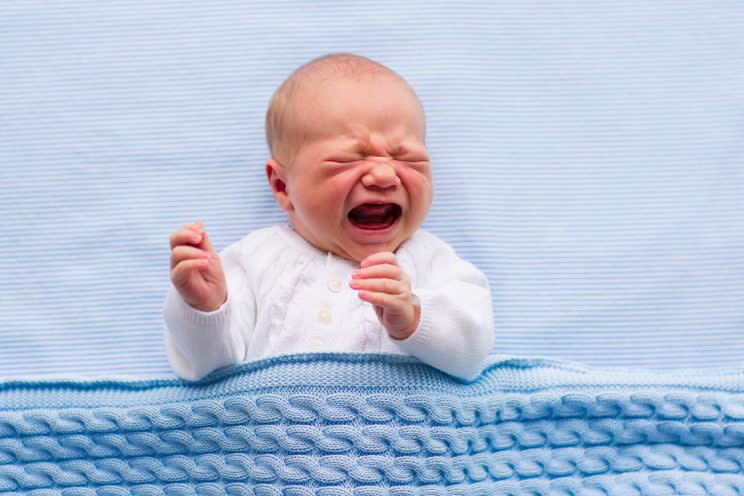British newborns cry more than almost any other babies in the world

The sound of a newborn crying is often hard to ignore, but British parents better get used to the noise as babies in the UK cry more than almost anywhere in the world, new research has revealed.
Researchers at the University of Warwick’s psychology department analysed data on almost 8,700 infants taking part in previous studies to find out how upset babies in different countries get in their first 12 weeks.
The study, published in the Journal of Pediatrics, reveals that the biggest baby bawlers were found to be in the UK, Italy, Canada and the Netherlands, while babies cried least in Denmark Germany and Japan.
On average, babies cried for around two hours per day in their first two weeks after birth, while the research also revealed that crying peaked at two hours 15 minutes when babies were six weeks before reducing to one hour 10 minutes by week 12.
While some cry babies were found to cry for more than four hours every day, others cried for as little as just half an hour.
Detailing some of the highest levels of crying, the study found that among babies aged up to nine weeks 34.1 per cent of Canadian babies cried for more than three hours a day for at least three days a week, 28 per cent of UK infants, 20.9 per cent of Italian babies.
On the other end of the scale just 5.5 per cent of Danish babies cry for more than three hours a day, and only 6.7 per cent of German babies.
Though the exact reason why British babies cry so much is not clear, researchers suggest that parents in the UK may be “quicker to respond” to their children, making them less likely to self-soothe.
And other countries may give babies more ‘skin-to-skin’ contact which experts believe to be calming for children. Other explanations offered by the researchers include the method of feeding, with bottle ormixed feeding associated with reduced duration of colic (defined as crying for longer than three hours a day for at least three days a week) from three to four weeks of age onward.
Lead researcher, Prof Dieter Wolke from University of Warwick’s department of psychology, said: “Babies are already very different in how much they cry in the first weeks of life – there are large but normal variations. We may learn more from looking at cultures where there is less crying and whether this may be due to parenting or other factors relating to pregnancy experiences or genetics.”
![For British parents the crying struggle is very real [Photo: Martinus via Pexels]](https://s.yimg.com/ny/api/res/1.2/lUTw6cOatSp4gm4jR15WRQ--/YXBwaWQ9aGlnaGxhbmRlcjt3PTk2MDtoPTY0MA--/https://media.zenfs.com/en/homerun/feed_manager_auto_publish_494/d29c53f8e909924fa7311c007664aff3)
But despite the variations, there is light at the end of the tunnel for all new parents struggling with a wailing newborn as the study revealed that even if a baby’s crying duration was higher in the first six weeks, it reduced significantly in the next six weeks.
“The new chart of normal fuss/cry amounts in babies across industrialised countries will help health professionals to reassure parents whether a baby is crying within the normal expected range in the first three months or shows excessive crying which may require further evaluation and extra support for the parents,” Professor Wolke continued.
So if you’re a British parent desperately trying to soothe a wailing bubba, take comfort in the fact that you’re not alone. The struggle is real for most of us Brits.
Follow us on Instagram and Facebook for non-stop inspiration delivered fresh to your feed, every day. For Twitter updates, follow @YahooStyleUK.
Read more from Yahoo Style UK:
Mum warns parents after baby suffers severe reaction to Nurofen
Toddler dies after waiting three days for life saving operation



